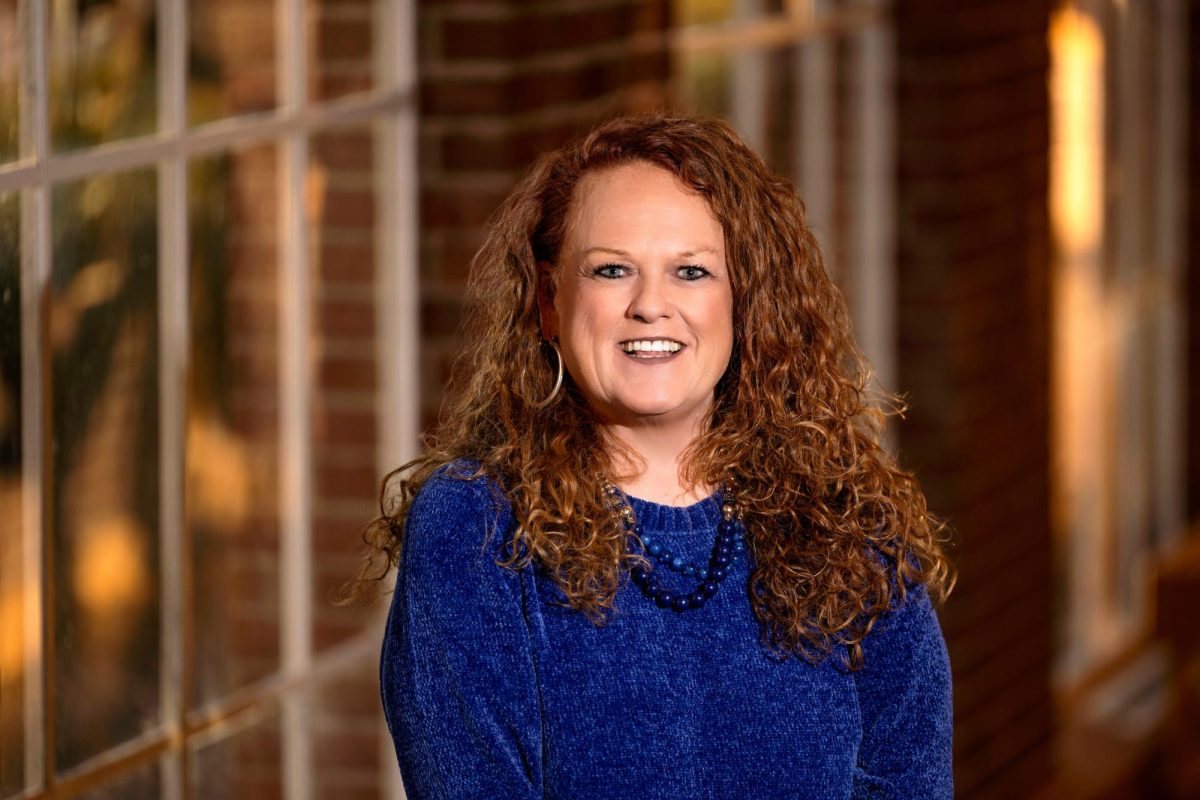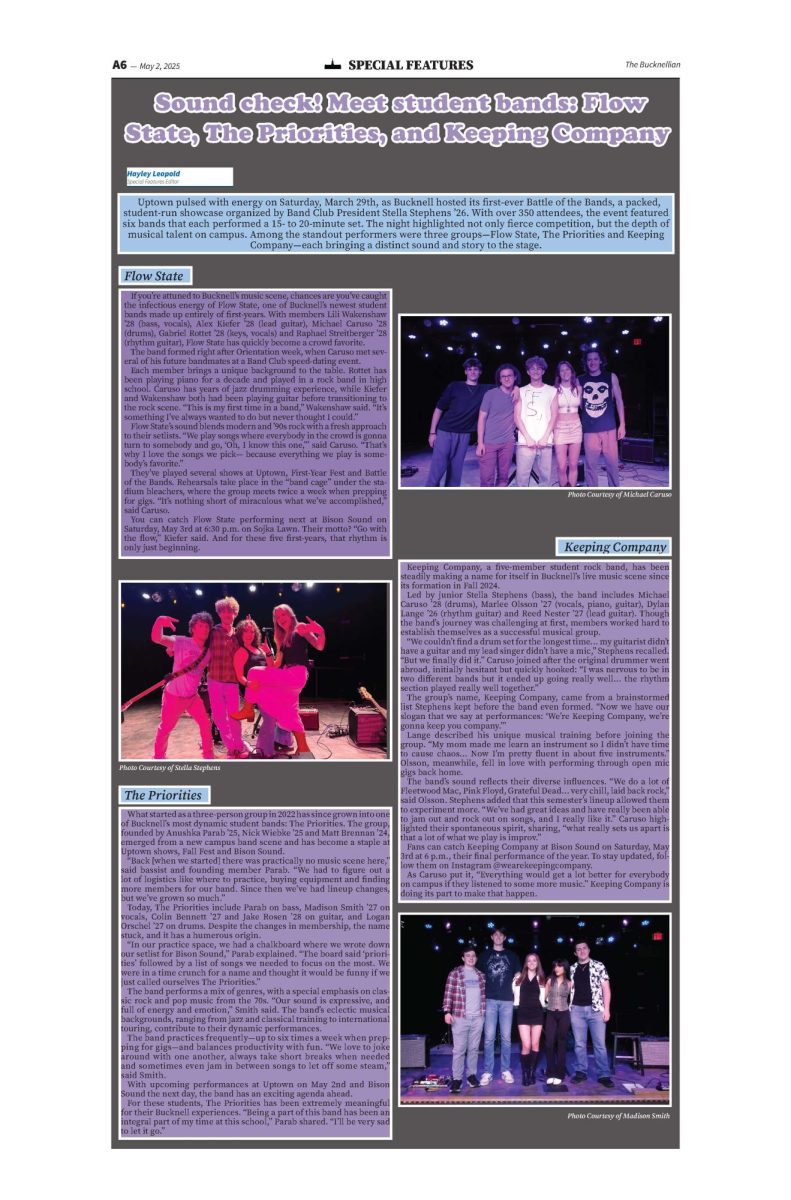Last Tuesday, Bucknell welcomed a well-known public figure to come and speak: Senator Rand Paul, MD. This marked a momentous occasion for the University, as the senator from Kentucky is the first sitting U.S. senator to visit Bucknell in over two decades.
The talk was hosted by the Open Discourse Coalition (ODC), a not-for-profit organization comprised of Bucknell alumni from every decade since 1950 that supports both activities and lectures that allow students and the general community to “hear competing views on [topics] in a civil context” and “supply a variety of intellectual viewpoints” on topics that are culturally controversial in our society today.
The talk with the Senator was a part of the ODC’s series ‘Culture and the Constitution,’ in which the Senator addressed issues like public health and the United States’ global military responsibility and how it relates to our constitution. The large conversation was led by Fr. Paul Siewers, Associate Professor of English, and then followed with smaller group discussions between alumni and students.
Senator Paul has been serving as a junior senator from Kentucky since 2011, and has been recognized as “one of the nation’s leading advocates for liberty,” according to his website. Having recently been in the news regarding the Covid-19 pandemic, Paul shared his opinions regarding the global issue as stated in his most recent book entitled “Deception: The Great Covid Cover-Up.”
Because of his decades of experience as a physician, Paul offered his stance and advice on many issues currently facing the country including the U.S. as a global military power, the federal government’s handling of the Covid-19 pandemic, reducing government spending and the current role the constitution plays in our society.
In terms of the role the U.S. Constitution plays in our society today, particularly the United States’ interactions with other nations as a global military power, Paul answered that he aims to protect the functionality of our branches of government as written in the Constitution. On the act of going into war, Paul stated that as Congress is the only branch of government that has the constitutional power to declare war, too much authority has gone to the Executive Branch. Drawing on precedent from the negative reactions of the public from the Vietnam War, he addressed that war is more effective from the public’s perception when a unanimous decision is reached from Congress. He believes that protecting the separation of powers in the government decreases the likelihood of U.S. involvement in conflict, ultimately protecting the country and its citizens. It is the act of following the processes that have been explicitly laid out within the Constitution that strengthens democracy.
Senator Paul was also asked to discuss his experience working in government during the Covid-19 pandemic. Paul argued that because there are no “pandemic exceptions” in the Constitution, the governmental stakes in terms of responsibly handling the pandemic were greater. Paul believes that the Covid-19 pandemic called into question issues on civil liberties, and he used his decades-long expertise as a scientist and physician to thoroughly explain the research behind policies that were made during the pandemic.
A vast and diverse group of individuals gathered to listen to the senator speak. Students, alumni, campus administrators, donors and school representatives like President John Bravman were all in attendance. After Paul had answered the programmed questions, all members of the community were invited to line up and ask questions regarding his policies, personal opinions and advice. Questions from the public included subjects such as the distrust in both federal and local government by vulnerable U.S. populations, reducing current government spending as well as lowering the price of goods while still incentivizing private entities. After the questions, the Senator and a smaller group of students, staff and alumni joined for an extended conversation about his book, his policies and the effects of the Covid-19 pandemic.
This event would not have been possible without the efforts of the Open Discourse Coalition, as well as the work of the University. Senator Rand Paul’s visit to campus was an effort to promote civil discourse and open dialogue between individuals of different political opinions.





















